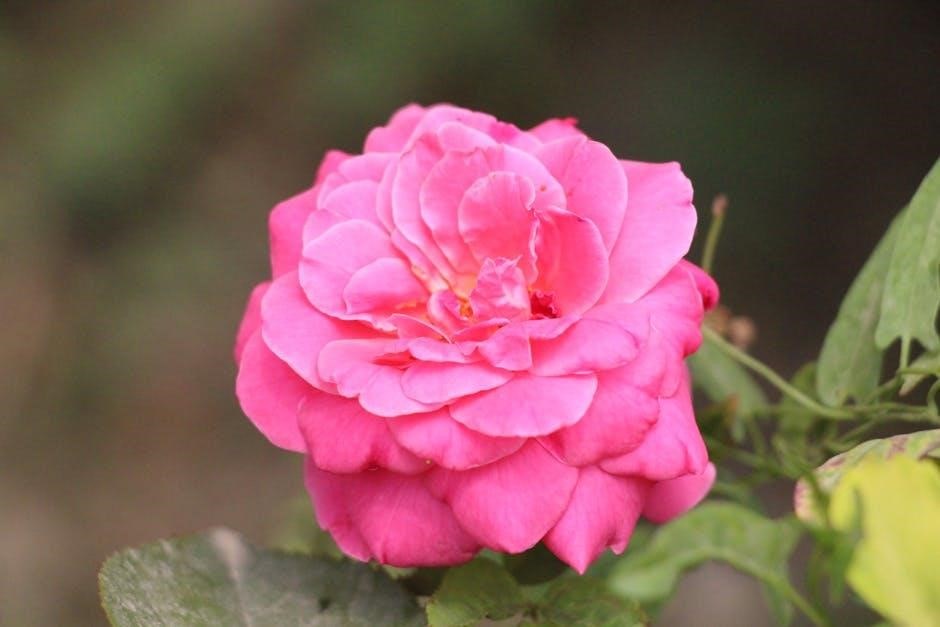Biodynamic Growing Guide Cards are practical tools designed to help gardeners implement biodynamic principles. They provide insights into lunar planting, preparations, and sustainable methods, promoting soil health and ecological balance.
Key Principles of Biodynamic Gardening
Biodynamic gardening emphasizes a holistic, ecological approach, focusing on lunar planting, biodynamic preparations, and sustainable practices to enhance soil fertility and biodiversity, promoting a balanced ecosystem.
Holistic Approach
Biodynamic gardening views the garden as a self-contained, interconnected ecosystem. It emphasizes harmony between plants, soil, and animals, fostering biodiversity and natural balance. This approach encourages gardeners to consider the entire farm or garden as a living organism, where every element supports the others, minimizing external inputs and promoting sustainability. The holistic method ensures healthy, vibrant growth by aligning with nature’s rhythms and cycles.
Lunar Planting
Lunar planting is a core biodynamic principle, guiding gardeners to synchronize planting with the moon’s cycles. The moon’s gravitational pull influences soil moisture and plant growth, with specific phases ideal for planting. Biodynamic Growing Guide Cards offer detailed charts, helping gardeners identify optimal times for sowing seeds, pruning, and harvesting, enhancing seed germination and plant vitality through natural timing.
Role of Preparations
Biodynamic preparations are essential for enhancing soil fertility and plant vitality. Made from natural materials like cow manure and silica, these preparations promote nutrient-rich soil and healthy plant growth. They support the holistic integration of the farm as a living organism, fostering ecological balance and vitality in the garden, and are a cornerstone of biodynamic practices, as outlined in the guide cards.
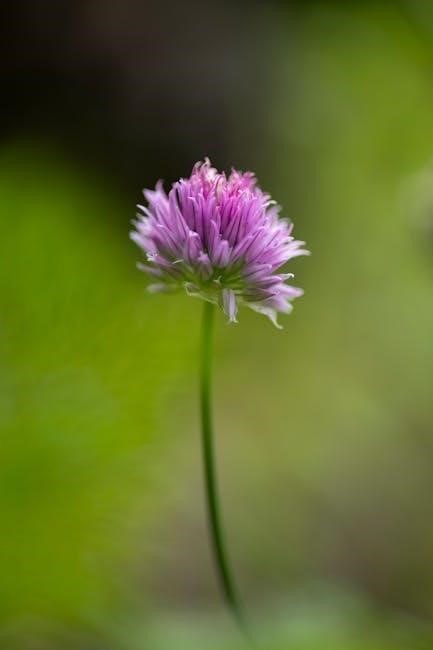
Structure and Content of Biodynamic Growing Guide Cards
Biodynamic Growing Guide Cards offer a structured approach with planting charts, preparation guides, and timing tips. They serve as a practical handbook for gardeners to implement biodynamic methods effectively, ensuring optimal planting schedules and sustainable practices while maintaining soil health and ecological balance.
Overview of Guide Cards
Biodynamic Growing Guide Cards provide a comprehensive overview of biodynamic gardening practices. They cover key topics such as lunar planting, soil health, and sustainable methods, offering gardeners a clear roadmap to implement biodynamic principles effectively. These cards serve as a practical resource for maintaining ecological balance and promoting vibrant plant growth.
Planting Charts
Planting charts in biodynamic guide cards outline optimal planting times based on lunar cycles. They detail favorable moon phases for sowing, transplanting, and harvesting, ensuring synchronization with natural rhythms. These charts help gardeners align their activities with cosmic influences, enhancing plant vitality and growth. By following these guidelines, gardeners can maximize yields and promote healthy plant development in harmony with nature.
Preparation Guides
Preparation guides within biodynamic growing guide cards detail the making and application of biodynamic preparations. These guides outline the nine key preparations, such as horn manure and silica, and explain their roles in enhancing soil fertility and plant vitality. They also provide step-by-step instructions for preparing and applying these treatments, ensuring gardeners can effectively implement biodynamic practices.
The guides emphasize timing and methods for applying preparations, often synchronized with lunar cycles. They offer practical advice on storage, dosage, and application tools, making it easier for gardeners to integrate these preparations into their routines. By following these guides, gardeners can create a balanced, thriving ecosystem in their gardens.
The Role of Biodynamic Preparations
Biodynamic preparations enhance soil fertility and plant vitality, working in harmony with lunar cycles to create a balanced ecosystem that fosters healthy growth and resilience in gardens.
Overview of Preparations
Biodynamic preparations are natural substances used to enhance soil health and plant vitality. Key preparations include horn manure and horn silica, made from cow horns, and herbal remedies like yarrow, chamomile, and stinging nettle. These are applied in small quantities to nourish the soil, stimulate microbial activity, and promote balanced plant growth. They work in harmony with lunar cycles to create a thriving, resilient ecosystem in gardens and farms.
Making and Applying
Biodynamic preparations are crafted from natural materials like cow horns and herbs; Horn manure is made by burying cow horns in winter, while horn silica involves summer burial. Herbal preparations, such as yarrow and chamomile, are fermented. These are applied in small doses to soil or plants, often timed with lunar cycles, to enrich soil fertility, enhance plant vitality, and promote a balanced ecosystem.
Lunar Planting and Timing
Lunar planting synchronizes gardening activities with the Moon’s phases. The waxing moon favors leafy greens, while the waning moon suits root crops. Guide cards provide precise timing.
Moon’s Influence
The Moon’s gravitational pull impacts soil moisture and plant growth. Waxing moons promote leafy growth, while waning moons favor root development. Biodynamic guide cards detail how lunar cycles influence planting timing, ensuring synchronization with nature for optimal results in gardening and agriculture.
Using Guide Cards for Timing
Biodynamic Growing Guide Cards provide detailed lunar planting charts, helping gardeners synchronize planting with the Moon’s cycles. They outline optimal times for sowing, pruning, and harvesting, ensuring alignment with nature’s rhythms. These cards enhance productivity by guiding gardeners to work in harmony with celestial influences, promoting healthier crops and efficient gardening practices throughout the growing season.
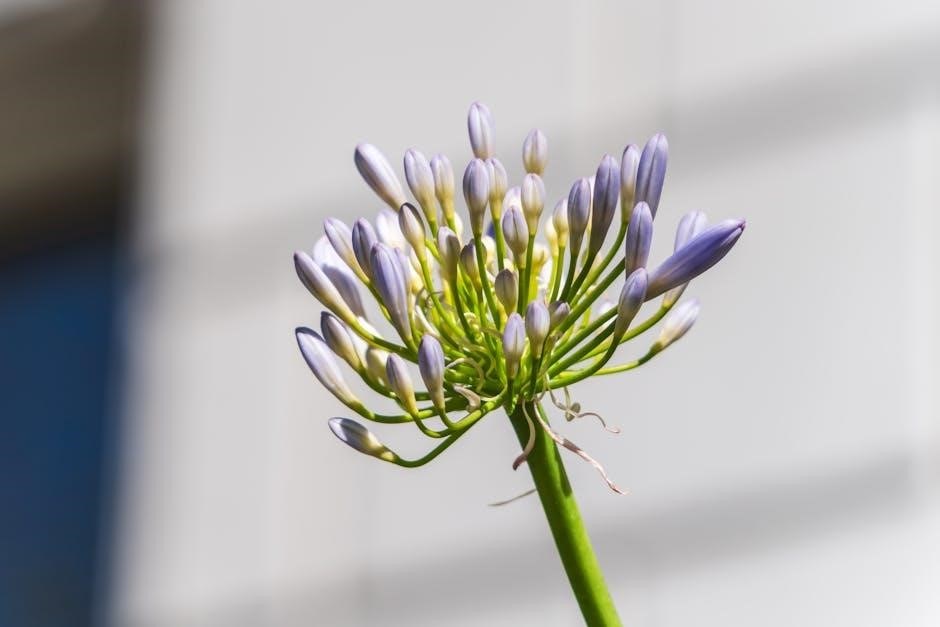
Soil Health and Maintenance
Biodynamic practices emphasize soil health through natural composting and fertilizers. Guide cards provide methods to enhance soil vitality, promoting microbial activity and nutrient-rich environments, essential for sustainable gardening.
Importance of Soil
Soil is the foundation of biodynamic gardening, acting as a living ecosystem that nourishes plants. Healthy soil fosters strong root systems, improves water retention, and supports microbial diversity, ensuring vibrant plant growth and resilience. Biodynamic guide cards highlight the importance of maintaining soil fertility through natural composting and balanced fertilization practices, creating a sustainable and productive gardening environment.
Methods in Guide Cards
Biodynamic guide cards provide detailed methods for enhancing soil health and plant vitality. They include composting techniques, natural fertilization strategies, and tips for integrating animal manure. These cards also offer practical advice on lunar planting, preparation application, and sustainable practices, ensuring gardeners have actionable steps to maintain a balanced and thriving garden ecosystem.
Integrating Animals in Biodynamic Gardening
Animals play a vital role in biodynamic gardening by contributing manure and waste, which are used to enrich soil fertility and create a balanced ecosystem for plants.
Role of Animals
Animals contribute manure and waste, enriching soil fertility and enhancing nutrient cycles. Their integration fosters ecological balance, supporting plant health and biodiversity. This symbiotic relationship promotes sustainable gardening practices.
Using Manure and Waste
Manure and waste from animals are transformed into nutrient-rich compost, enhancing soil fertility. This process reduces waste and supports sustainable gardening. Biodynamic guide cards provide methods for composting, ensuring healthy soil structures and promoting a self-sufficient ecosystem. Proper use of manure fosters plant growth and maintains ecological balance, aligning with biodynamic principles of resource efficiency and natural cycles.
Sustainable Practices in Biodynamic Gardening
Sustainable practices emphasize composting, reducing waste, and maintaining soil health. Guide cards offer eco-friendly methods, promoting resource efficiency and natural cycles to create a balanced ecosystem.
Key Practices
Key practices include composting, using animal manure, and reducing synthetic inputs. Crop rotation, water conservation, and integrating plants with animals are emphasized. These methods enhance soil fertility, reduce waste, and promote biodiversity, aligning with biodynamic principles to create a self-sustaining ecosystem while minimizing environmental impact.
Guide Card Recommendations
Guide cards recommend timing plantings with lunar cycles, using biodynamic preparations like horn manure, and adopting sustainable practices. They suggest specific methods for composting, crop rotation, and integrating animals. These recommendations aim to enhance soil fertility, reduce waste, and promote biodiversity, ensuring a balanced and thriving garden ecosystem while adhering to biodynamic principles.
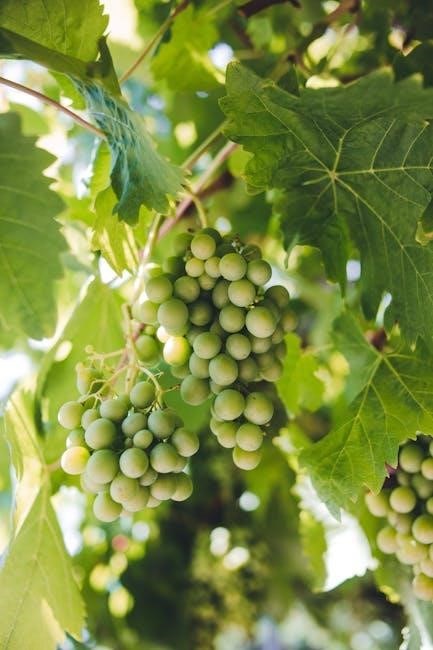
Using Biodynamic Growing Guide Cards in Practice
Biodynamic Growing Guide Cards offer practical advice for daily gardening tasks, syncing plantings with lunar cycles, and applying preparations to enhance soil vitality and biodiversity naturally.
Tips for Gardeners
- Start with compost to enrich soil fertility and promote beneficial microorganisms.
- Observe lunar cycles for optimal planting and harvesting times.
- Apply biodynamic preparations like horn manure and silica for soil vitality.
- Monitor plant health and adjust practices based on seasonal changes.
- Incorporate animal manure and waste to create nutrient-rich compost.
- Keep a gardening journal to track progress and refine techniques.
Monitoring Progress
Regularly observe plant health, soil vitality, and ecosystem balance to assess growth. Track changes in soil structure and fertility over time. Maintain detailed records of planting dates, preparation applications, and lunar influences. Use guide cards to simplify monitoring and identify patterns. Adjust practices based on observations to enhance soil fertility and biodiversity, ensuring long-term sustainability and ecological harmony in your garden. Consistent monitoring fosters deeper understanding and improvement.
Comparison with Other Gardening Methods
Biodynamic gardening differs from other methods by its holistic approach, emphasizing lunar cycles and natural preparations, promoting sustainability and soil health more effectively than conventional practices.
Biodynamic vs. Organic
Biodynamic gardening goes beyond organic practices by incorporating lunar cycles and natural preparations, enhancing soil fertility and plant vitality; While organic focuses on avoiding synthetic chemicals, biodynamic adds holistic, ecological principles, creating a more integrated farming system. Both methods prioritize sustainability, but biodynamic offers a deeper, spiritual connection to nature, making it a unique choice for gardeners seeking enhanced productivity and environmental harmony.
Benefits of Biodynamic
Biodynamic gardening enhances soil fertility, plant health, and biodiversity through holistic practices. It improves crop yields, promotes ecological balance, and fosters sustainable farming. By using natural preparations and lunar cycles, it boosts plant vitality and resilience. This method also supports higher nutritional value in produce and reduces environmental impact, making it a superior choice for eco-conscious gardeners seeking long-term soil and plant health benefits.
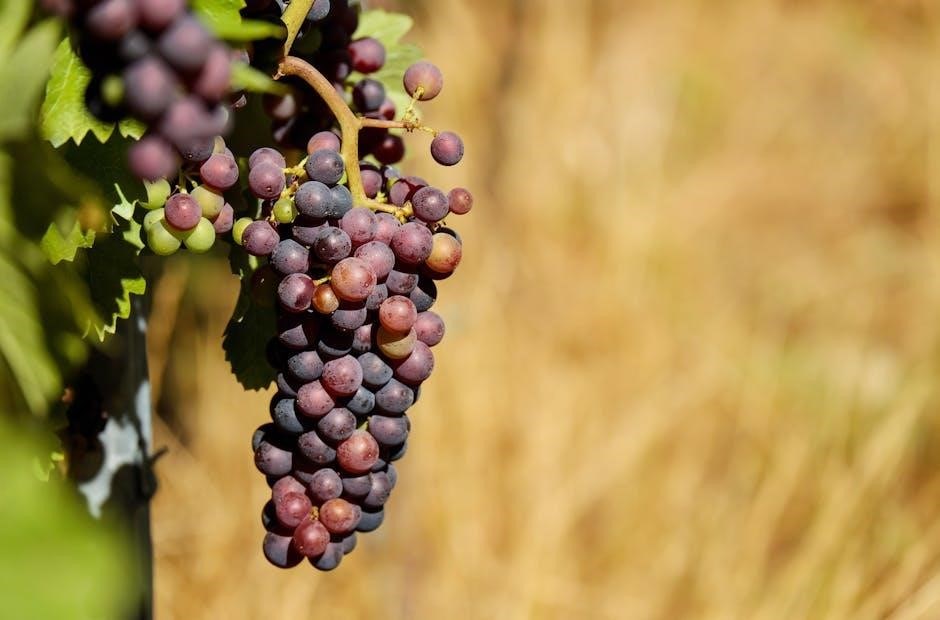
Resources for Further Learning
Explore online communities, forums, and websites dedicated to biodynamic gardening for shared knowledge and support. Utilize guide charts and video tutorials for practical insights and hands-on learning.
Workshops and Books
Engage with digital workshops and educational bundles for hands-on learning. Explore books offering in-depth guides on biodynamic principles, lunar planting, and preparations. These resources provide expert insights and practical advice for gardeners of all levels, ensuring a comprehensive understanding of biodynamic practices and their effective application in sustainable gardening.
Online Communities
Online communities offer valuable spaces for gardeners to share knowledge and experiences. Forums and social media groups dedicated to biodynamic gardening provide resources, advice, and support. These platforms foster collaboration, helping enthusiasts learn about lunar planting, preparations, and sustainable practices. They are ideal for networking, troubleshooting, and staying updated on the latest trends in biodynamic gardening.
